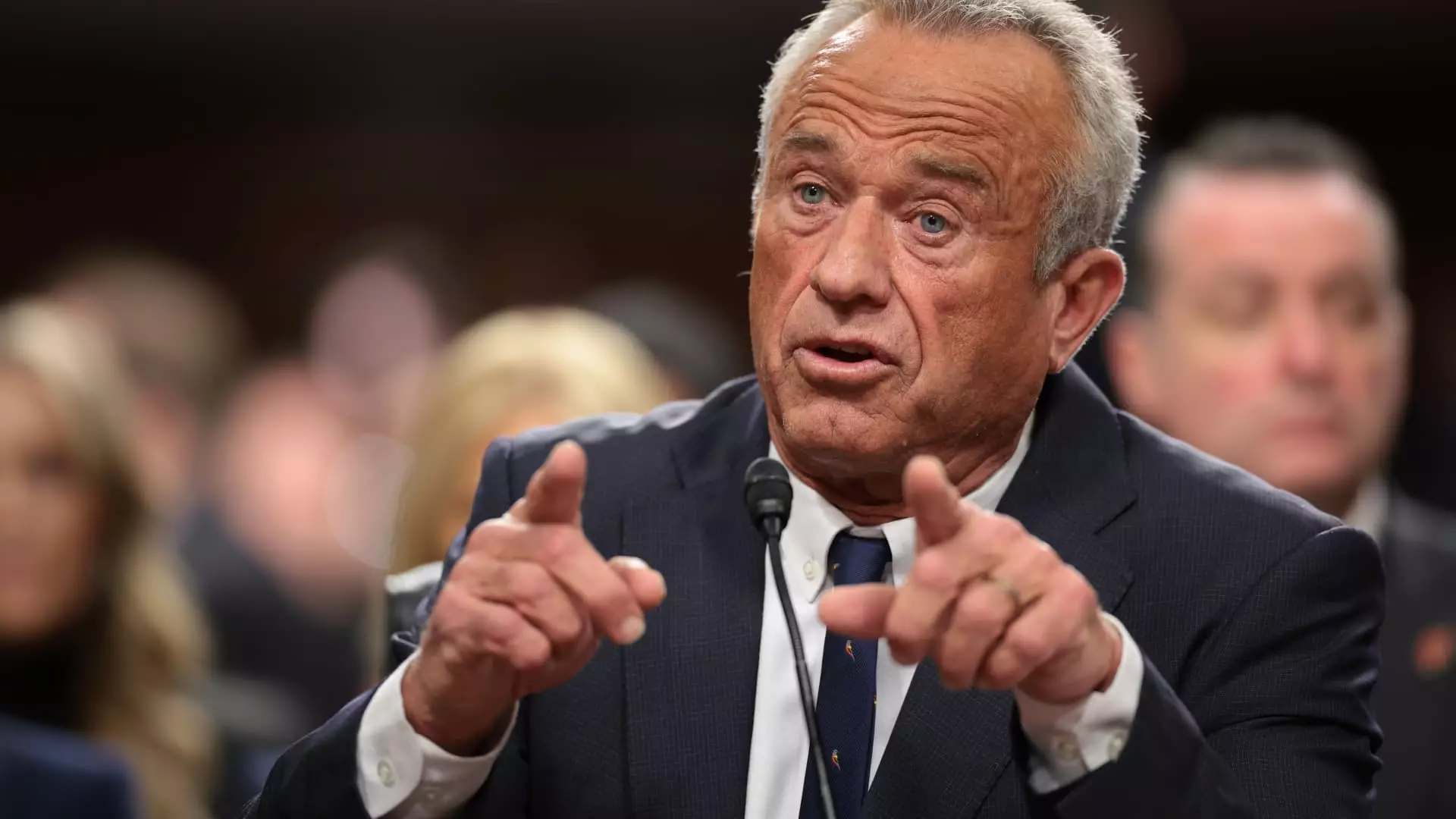Recently, Secretary of Health and Human Services Robert F. Kennedy Jr. has proclaimed a revolutionary agenda aimed at purging “the worst ingredients” from our food systems. While his intentions appear noble—promoting health and consumer choice—the approach heralds an unsettling reality for both the food industry and public health. By prioritizing the immediacy of removing artificial dyes, Kennedy is not just targeting ingredients, but also stepping onto a precarious path fraught with the potential for regulatory overreach and unforeseen consequences.
The meeting with top food executives has become a pivotal moment in his fledgling administration, marking a transition toward a more interventionist philosophy. Indeed, Kennedy’s Make America Healthy Again mantra echoes a center-right liberal perspective that calls for improvement but risks ramping up tensions with an already intricate food supply network heavily reliant on established practices. This raises concerns about how far executives will be willing to go to align their interests with that of Kennedy’s household agenda.
Corporate Pushback: A Catalyst to Reform or Fearful Retreat?
The question arises: Will food corporations respond proactively to Kennedy’s quest for a cleaner food supply, or will they retreat into protective mechanisms, hedging against the anticipated regulatory storm? Consumer Brands Association CEO Melissa Hockstad’s optimistic take on the meeting hints at productive collaboration; however, past patterns of industry resistance suggest otherwise. Corporations like PepsiCo, Kraft Heinz, and General Mills have often favored minimal compliance over meaningful reform.
What these companies fail to realize—or perhaps purposefully overlook—is that public sentiment is in flux. The consumer base now demands transparency and health consciousness, illuminating an opportunity for businesses to transform or risk becoming obsolete. Yet, Kennedy’s rhetoric has the potential either to escalate corporate defenses, triggering a battle with public health advocates, or encourage companies to adhere to a more consumer-friendly ethos. It remains to be seen whether industry players are willing to disrupt their longstanding relationships with less-savory ingredients for the sake of positive brand perception.
Where Science Meets Speculation
Kennedy’s assertion that a ‘corrupt alliance’ between drug manufacturers and federal health agencies contributes to America’s declining health plays into wider narratives of skepticism toward authoritative guidance. This perspective, particularly his stance on vaccines, raises concerning implications. As he reviews vaccination policies amid falling childhood rates, one must contemplate whether he’s truly safeguarding public welfare or sowing seeds of mistrust that could invoke larger health crises.
America’s struggles with chronic disease are complex and multifactorial—a simplistic approach that solely blames companies or government agencies fails to address deeper structural issues in our health care ecosystem. While eliminating harmful additives is crucial, Kennedy’s forthcoming initiatives may inadvertently foster public confusion about scientifically established health protocols, thus jeopardizing vaccination efforts at a time when unity and solidarity are paramount.
The Dangers of the “Feel-Good” Approach
Underlying the allure of declared dietary reform is the deception of simplicity. The concept of using food as a vehicle for enhancing health rather than pharmaceuticals resonates deeply with many, yet this notion can divert attention from critical factors like access to healthy food options and education. While Kennedy’s goal to eradicate artificial dyes might sound commendable, it opens the door for populism to infiltrate health decisions, often lacking in scientific backing.
Kennedy’s ambitious roadmap could also obscure more pressing dietary concerns such as obesity, food deserts, and socio-economic factors. A sweeping ban on certain ingredients could serve to mask these complex realities, simplifying an intricate issue into a singular, misguided focus.
Kennedy’s drive to purify the American food system has sparked productive discussions across industries. Yet, while collective engagement between health officials and food corporations remains essential, we must tread carefully. The decision to grant power to those who challenge the scientific consensus invites risks that could, in the long run, derail public health progress. Balancing moral convictions against empirical evidence is the enduring challenge at the forefront of this transformation.


Leave a Reply